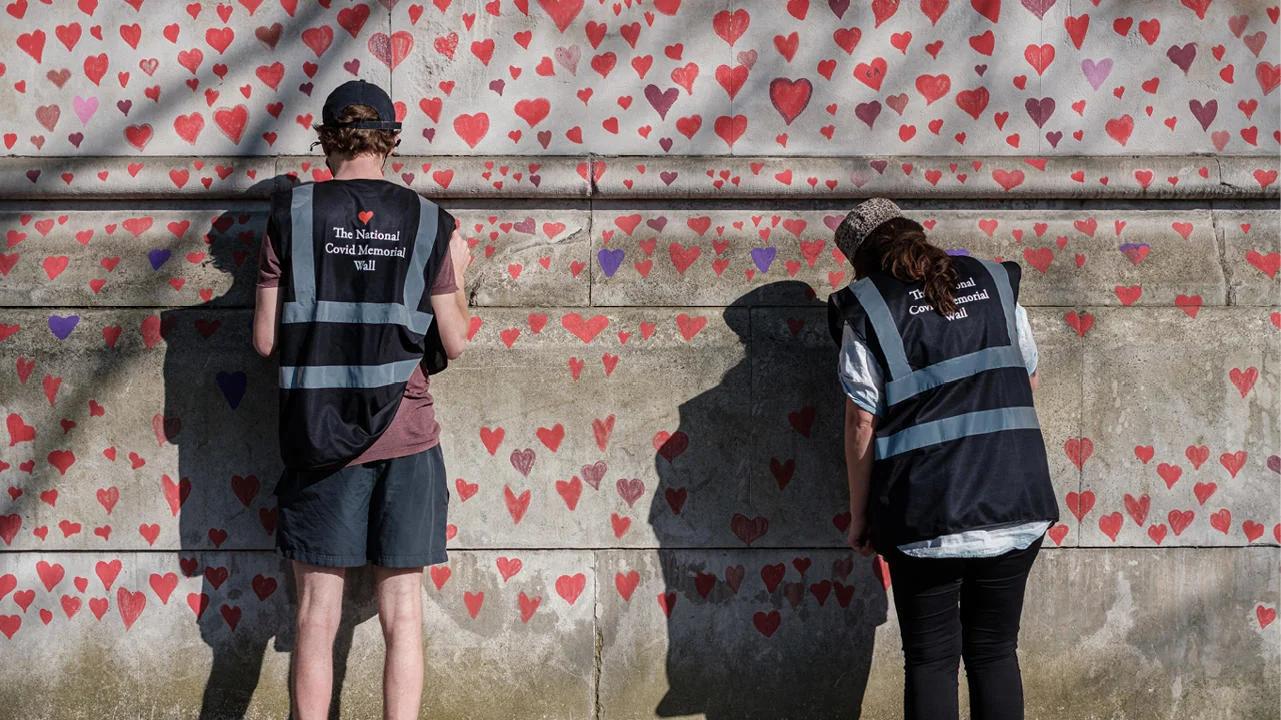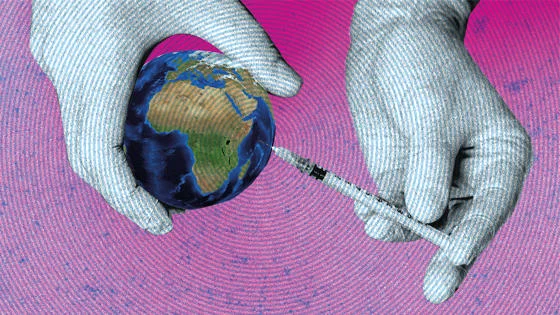Confronting grief: the state’s role in remembering those lost to COVID-19

Contents
On Tuesday 23 March 2021, the UK came together for a minute’s silence. While sitting at our make-shift home desks, queuing for the supermarket in our face masks or taking our daily exercise, the country took a moment to mark one year since the first lockdown and remember those who have tragically lost their lives to coronavirus.
"While acknowledging the pain resulting from the pandemic in this way is an important step in the right direction, we hope there are more plans to support communities dealing with grief," says Dr Yuna Han, a Fellow in the Department of International Relations at LSE.
Dr Han and her colleagues, Dr Katharine Millar and Dr Martin Bayly, have been studying global state responses to the pandemic since April 2020. The team believe that unless the grief experienced by the public is explicitly, empathetically and consistently addressed and acknowledged by those in power, discontent and challenges to social order could arise.
Pushing [commemorations] back is not only an ethical failure but is likely to become a future political problem.
A mass death event will help communities deal with grief over COVID bereavements
As part of this, they have called on policymakers to recognise the pandemic as a mass death event and ensure that all communities and experiences of loss are acknowledged and remembered with a national day of mourning.
Although the UK government has designated a national day of mourning to be observed annually, its plans have not yet gone much beyond this. The researchers argue that care should be taken to ensure that any commemoration is inclusive and supported by material support or resources, and suggest that the commission of inquiry into the state's response to the pandemic could also include a focus on commemoration and memory, in addition to important questions of blame and accountability, as a form of witness.
"Mass death events are very intertwined with state authority and legitimacy and are extremely political, even though we tend to think of grief as a private event," says Dr Millar, who has previously studied public grief in the context of the military.
"It’s likely questions of commemoration and collective memory are going to get pushed back and deprioritised by the government, but I know from previous work that grief is an important part of recovery and healing. Pushing it back is not only an ethical failure, but is likely to become a future political problem," she continues.
The team argue that while a shift of government focus towards the vaccine drive is completely understandable, those who have lost family members to COVID or suffered ongoing trauma may feel like the rest of society has forgotten them and moved on.
Learning from the past to prepare for the future
And how a government addresses a nation’s grief is not just a concern for social order, the team believe it could play an important role in preparing for future pandemics. As part of the project, Dr Martin Bayly studied the UK’s response to the Spanish flu of 1918/19 and found no evidence of national commemoration, despite the death of over 228,000 British citizens.
Although the timing of the First World War played a role in this, he argues it could also be symptomatic of the fact that many of the victims – young, urban, working class women - were marginalised in society. This absence of public grief, he suggests, may very well have hindered the UK’s ability to appropriately prepare for future outbreaks and learn lessons going forward. Interestingly, New Zealand was the only country worldwide to memorialise those who died from Spanish flu.
Not doing something – like fully confronting the nation’s grief – might feel like a neutral decision but that’s not true. Not doing something is itself a decision which will have political and social repercussions.
Although the research team are keen for the government to address national grief head on, they stress the need for this recognition to avoid the perpetuation of inequalities which have sharply risen in the pandemic - especially in relation to age, race, ethnicity, ability, class and location.
"I’m not too concerned about what commemoration looks like, just that it’s an inclusive response to the needs and experiences of everyone affected and doesn’t tell a single story that is tightly tied to power and the status quo," explains Dr Millar.
Statistics versus feelings
As part of the project, the team (supported by PhD students Katharina Kuhn and Irene Morlino and three master’s students) explored how four different governments around the world responded to the pandemic – the UK, Italy, Germany and South Korea. They found countries varied significantly in how they chose to communicate information, with the UK government focusing heavily on a daily death toll rather than the social and emotional impact of the virus.
Although key workers and the public are thanked for their sacrifices, government emphasis, at least initially, warned of the inevitability of deaths – particularly for people working on the front line, the elderly or those with underlying health conditions.
This can be drawn in contrast with Italy or South Korea, where death is characterised by loss and grief and framed as something to be avoided at all costs. In South Korea, each death is discussed in a specific manner during national press briefings by public health officials - providing both an emotional and educational experience, where citizens can learn more about individual cases and transmission.
In Italy, various forms of national commemoration led by the government have already taken place such as a national day of memory, a minute’s silence, mourning services, sports events and monuments.
While there are understandable reasons for these different national responses, such as the relatively low death rate in South Korea, the team are keen to stress that governments have control over how they respond. "Not doing something – like fully confronting the nation’s grief – might feel like a neutral decision but that’s not true. Not doing something is itself a decision which will have political and social repercussions," explains Dr Han.
The pandemic has changed our lives in many ways and will continue to do so for years to come. As the team note, how each society chooses to narrate, manage and commemorate death will play a key role in shaping our post-COVID world.
Image: Unsplash.
Martin Bayly, Yuna Han and Katharine Millar were talking to Charlotte Kelloway, Media Relations Manager at LSE.
Download a PDF version of this article






